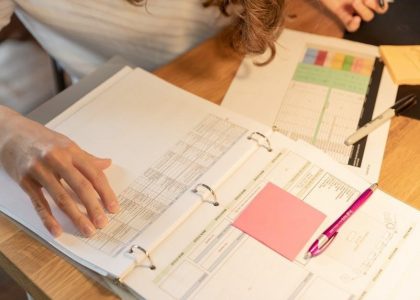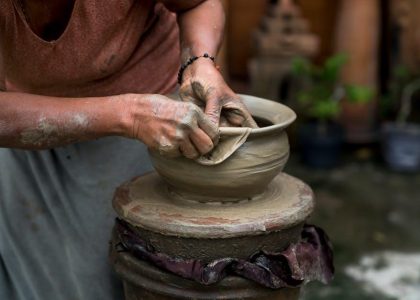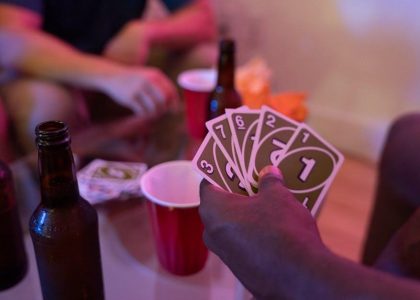Split prep colonoscopy involves dividing bowel preparation into two doses, taken the evening before and the morning of the procedure, enhancing effectiveness and patient tolerance for better colon visibility.
1.1 What is Split Prep Colonoscopy?
Split prep colonoscopy is a bowel preparation method where the cleansing process is divided into two separate doses. The first dose is taken the evening before the procedure, and the second dose is consumed the morning of the colonoscopy. This approach improves colon visibility, allowing doctors to detect polyps and abnormalities more effectively. It is designed to enhance patient comfort and compliance, as it reduces the amount of liquid consumed at one time. Split prep is widely recommended for its effectiveness in ensuring a clean colon, which is crucial for accurate results. By splitting the preparation, patients can better tolerate the process, leading to higher success rates in colonoscopy procedures. This method has become a standard practice in modern gastroenterology, offering a balanced approach to preparation and patient convenience.
1.2 Benefits of Split Dose Preparation
Split dose preparation offers several advantages, making it a preferred method for colonoscopy. It improves colon visibility by ensuring a cleaner colon, which enhances the detection of polyps and abnormalities. Patients often find it more tolerable, as it reduces the volume of liquid consumed at one time, minimizing discomfort. This method also allows for better scheduling, as the second dose can be taken closer to the procedure time, reducing interference with daily activities. Additionally, split dosing has been shown to improve patient compliance, as it breaks the preparation into manageable steps. Overall, split dose preparation balances effectiveness and patient comfort, making it a widely recommended approach for colonoscopy preparation.
1.3 Importance of Proper Bowel Preparation
Proper bowel preparation is crucial for the success of a colonoscopy. It ensures that the colon is clean and free of debris, allowing for clear visualization of the colon lining. This is essential for accurately detecting polyps, adenomas, and other abnormalities. Inadequate preparation can lead to missed lesions, repeat procedures, and increased healthcare costs. A clean colon also enhances the safety and effectiveness of the procedure, reducing the risk of complications. Patients are encouraged to strictly follow the split prep instructions to achieve optimal results. Proper preparation demonstrates a commitment to health and ensures that the colonoscopy is both diagnostic and preventative. By adhering to the guidelines, patients play a vital role in making their procedure successful and effective.

Understanding the Split Prep Colonoscopy Instructions
Understanding split prep colonoscopy instructions involves taking bowel preparation in two doses, one evening and one morning, to ensure thorough cleansing and clear visibility during the procedure. Follow specific steps carefully for each dose to achieve optimal results. Proper adherence enhances the effectiveness of the colonoscopy, making it safer and more accurate. Patients must complete the preparation as directed and arrange for a responsible adult to accompany them home after the procedure.
2.1 Overview of the Split Dose Regimen
The split dose regimen for colonoscopy preparation involves dividing the bowel cleansing process into two phases: the evening before the procedure and the morning of the procedure. This method is designed to improve the effectiveness of the preparation and enhance patient tolerance. On the evening before the colonoscopy, patients typically consume the first portion of the prescribed bowel prep solution, followed by clear liquids only. The second dose is taken the morning of the procedure, usually 4-6 hours before the scheduled time. This approach ensures that the colon is thoroughly cleansed, allowing for better visibility during the exam. Proper timing and adherence to the instructions are critical to avoid delays or the need to reschedule the procedure. The split dose regimen is widely recommended for its ability to balance efficacy and patient comfort, making it a preferred choice for many healthcare providers.

2.2 Step-by-Step Guide for Patients
Patients undergoing split prep colonoscopy should follow a structured plan to ensure proper bowel cleansing. Begin by purchasing the prescribed laxative and carefully reviewing the instructions provided by your healthcare provider. Two days before the procedure, start limiting high-fiber foods and avoid solid foods the day before. On the evening prior, mix the first dose of the prep solution (e.g., Suprep, Miralax, or Go-Lytely) as directed and drink it over 1-2 hours, followed by clear liquids only. The morning of the procedure, mix and consume the second dose, finishing at least 4 hours before your appointment. Stay hydrated with clear fluids like water or electrolyte drinks. Avoid red or purple liquids to prevent interfering with the exam. Complete all steps as instructed to ensure a clean colon and a successful procedure. Proper timing and adherence are crucial for optimal results.
2.3 Key Differences from Traditional Prep
Split prep colonoscopy differs from traditional prep by dividing the bowel preparation into two smaller doses, taken the evening before and the morning of the procedure. Unlike traditional methods, which often require consuming the entire prep solution the night before, split prep improves tolerance and effectiveness. This approach reduces the volume of liquid consumed at one time, making it easier for patients to complete the preparation. Additionally, split prep enhances bowel cleansing by ensuring the colon is clean both the evening before and the morning of the procedure, leading to better visualization during the exam. Studies show that split prep increases polyp detection rates and reduces residual stool, making it a more reliable and patient-friendly option compared to traditional single-dose regimens. This method is particularly beneficial for patients who find it challenging to tolerate large volumes of prep solution in one sitting.

Preparing for Your Colonoscopy
Preparing for your colonoscopy involves following split prep instructions, ensuring proper bowel cleansing with two doses of prep solution, one the evening before and the second the morning of the procedure.
3.1 Dietary Restrictions Before the Procedure
Adhering to dietary restrictions is crucial for effective bowel preparation. Patients should avoid solid foods the entire day before the colonoscopy and opt for a clear liquid diet, such as broth, water, or clear juices. Red or purple liquids should be avoided to prevent interfering with the procedure’s visibility. High-fiber foods, nuts, seeds, and hard fruits or vegetables must be avoided for at least three days prior to the procedure to ensure the colon is as clean as possible. Patients should also refrain from consuming any solid foods or drinks, including gum or candy, after midnight on the day of the procedure. Proper dietary adherence ensures optimal colon cleansing, making the colonoscopy more effective in detecting abnormalities.
3.2 Medication Management and Adjustments
Medication management is essential to ensure safety and effectiveness during your colonoscopy. Certain medications, such as blood thinners, diabetes medications, or opioid antagonists like Naltrexone, may need to be adjusted or temporarily stopped before the procedure. Patients with diabetes should consult their doctor about managing blood sugar medications, as some may need to be withheld. Additionally, medications for chronic heart failure or kidney disease may require a 4-day pause prior to the procedure. Always inform your healthcare provider of all current medications, including supplements, to avoid complications. Aspirin and NSAIDs may need to be paused one week before the procedure. Follow specific guidance from your healthcare team to ensure your safety and the success of the colonoscopy. Proper medication adjustments help minimize risks and optimize preparation quality.

3.3 Necessary Arrangements for the Procedure Day
On the day of your colonoscopy, it is crucial to make necessary arrangements to ensure a smooth experience. You must have a responsible adult accompany you to drive you home, as you will not be allowed to drive yourself after the procedure. Additionally, arrange for someone to stay with you for the remainder of the day to monitor your recovery. Diabetics should avoid short-acting insulin on the procedure day and consult their doctor for adjustments. All medications that need to be held, as instructed by your healthcare provider, should be paused. Ensure you complete the bowel prep as directed, finishing the final dose at least four hours before your appointment. Avoid consuming anything except as instructed, and arrive on time with all required documents. Proper arrangements ensure your safety and the success of the procedure.
Detailed Split Prep Instructions
Split prep colonoscopy involves two doses: one evening before and one morning of the procedure. Proper timing and mixing are crucial for effective cleansing and clear visibility during the exam.
4.1 Evening Before the Procedure
The evening before your colonoscopy, typically around 6-8 PM, you will start the first part of your split prep. Mix the prescribed bowel preparation solution, such as Suprep, Miralax, or Go-Lytely, with water as directed. Drink the entire first dose within 1-2 hours. After finishing, consume 16-32 ounces of clear liquids to stay hydrated. Avoid eating solid foods and opt for clear liquids only. Ensure all medications are taken as instructed by your doctor. Finish the prep at least 4 hours before bedtime to allow the solution to work effectively. Proper timing ensures your colon is clean for the procedure. Follow the specific instructions provided by your healthcare provider for the best results. Remember, adherence to the schedule is crucial for a successful colonoscopy. Clear liquids are allowed until midnight, but avoid red or purple fluids to prevent interfering with the exam. Rest well to prepare for the next morning’s final prep step.
4.2 Morning of the Procedure
On the morning of your colonoscopy, complete the second part of your split prep. Mix the remaining dose of your prescribed bowel preparation solution with water as instructed. Begin drinking it 4-6 hours before your scheduled procedure time. Aim to finish the entire solution within 1-2 hours, followed by 16-32 ounces of clear liquids to stay hydrated. Ensure the final dose is completed at least 2-3 hours before your appointment to allow the solution to take full effect. Avoid eating or drinking anything except clear liquids, and refrain from consuming red or purple fluids to prevent interfering with the exam. After finishing the prep, only clear liquids are permitted until arrival. Make sure to have a responsible adult accompany you to the procedure and arrange for a ride home. Follow your healthcare provider’s specific instructions for the best outcome.
4.3 Completing the Prep on Time
Completing the split prep on time is crucial for a successful colonoscopy. Finish the second dose of your bowel preparation solution at least 4 hours before your procedure to ensure your colon is clean. After completing the prep, only clear liquids are permitted until arrival. Avoid any solid foods, red or purple liquids, and gum or candy. If you experience difficulty finishing the prep, consider sipping through a straw or adding a flavor to make it more tolerable. Set reminders to stay on track with the timing, and have a caregiver assist if needed. Failure to complete the prep as instructed may result in a poor colon view, potentially requiring the procedure to be rescheduled. Proper adherence ensures your doctor can accurately examine your colon for any abnormalities.
Specific Bowel Prep Solutions
Popular bowel prep solutions include Suprep, Miralax, and Go-Lytely, each with specific instructions for split-dose regimens to ensure a clean colon for optimal procedure results.
5.1 Suprep Split Prep Instructions
For Suprep split prep, patients take the first dose the evening before the procedure and the second dose 4-6 hours before the colonoscopy. Mix one bottle of Suprep powder with 16 ounces of water, stir well, and drink within 30 minutes. After finishing, drink two more 16-ounce glasses of water within the next hour. The second dose is prepared similarly, mixing the remaining powder with water and drinking it gradually. It’s crucial to follow the prescribed timeline and complete the entire prep as directed. Avoid eating or drinking anything except the prep solution and water after midnight. The goal is to achieve a clear, yellow liquid stool, indicating the colon is adequately cleansed. Proper adherence ensures a successful procedure and accurate results.
5.2 Miralax Split Dose Preparation
Miralax split dose preparation involves dividing the colonoscopy prep into two parts: one dose taken the evening before the procedure and the second dose the morning of the procedure. Patients are instructed to mix one packet of Miralax powder with 32 ounces of a clear liquid, such as water or a sports drink, and drink the entire solution over 1-2 hours the evening before. The second packet is prepared similarly and consumed 4-6 hours before the colonoscopy. It’s important to drink an additional 32 ounces of clear liquid after each dose to stay hydrated. The prep is complete when the stool becomes light yellow and free of solid particles. Patients must avoid eating or drinking anything except the prep solution and clear liquids after midnight. Proper completion ensures a clean colon for an accurate exam.
5.3 Go-Lytely/PEG 3350 Split Prep
Go-Lytely/PEG 3350 split prep involves dividing the bowel preparation into two doses for better tolerance and effectiveness. Patients are instructed to take the first dose the evening before the colonoscopy and the second dose the morning of the procedure. Each dose consists of dissolving one packet of PEG 3350 in 2 liters of water and drinking it over 1-2 hours. The evening dose is typically taken between 6 pm and 7 pm, while the morning dose is taken 4-6 hours before the procedure. It’s crucial to drink an additional 32 ounces of clear liquid after each dose to ensure proper hydration. The prep is complete when the stool becomes clear or light yellow. Patients must avoid eating solid foods the day before and stop drinking all liquids, except for the prep solution, at least 4 hours before the colonoscopy. Completing the entire prep is essential for a successful exam.
Managing Side Effects and Discomfort
Common side effects of bowel prep include bloating, cramps, and nausea. Staying hydrated and taking breaks between doses can help reduce discomfort. If severe, seek medical advice promptly.
6.1 Common Side Effects of Bowel Prep
Bowel prep for colonoscopy often causes mild side effects like bloating, cramps, and nausea due to the laxatives. Some patients may experience dehydration or electrolyte imbalances. These effects are temporary and usually subside after completion. To manage discomfort, staying hydrated with clear fluids is essential. Taking breaks between doses and eating bland foods can also help alleviate symptoms. If side effects become severe, such as persistent vomiting or dizziness, it is crucial to contact your healthcare provider; Proper hydration and following instructions carefully can minimize these issues, ensuring the procedure’s success. Remember, while uncomfortable, these side effects are part of the process to ensure a clean colon for accurate results.
6.2 Tips to Reduce Discomfort

To minimize discomfort during bowel prep, stay hydrated by drinking clear fluids like water or herbal tea. Take breaks between doses to rest and relax. Eat bland foods such as crackers or toast to help with nausea. Avoid lying flat immediately after drinking the prep solution to reduce cramping. Sipping the solution slowly rather than gulping it down can also ease discomfort. If bloating occurs, gentle walking or light movement may help relieve gas. Avoid consuming red or purple liquids to prevent confusion with stool color. Following the instructions carefully and maintaining a positive mindset can make the process smoother. Remember, while the prep may be unpleasant, it is temporary and essential for a successful colonoscopy.
6.3 When to Seek Medical Attention
If you experience severe abdominal pain, persistent vomiting, or signs of dehydration (e.g., dizziness, excessive thirst, or dark urine), contact your healthcare provider immediately. Seek medical attention if you cannot complete the bowel prep as instructed, as this may delay your procedure. Additionally, if you notice unusual symptoms such as chest pain, difficulty breathing, or severe bloating, do not hesitate to reach out to your doctor. It is also important to inform your provider if you have concerns about medication interactions or if you develop a fever. Remember, your health and safety are priorities, and addressing issues promptly ensures the best outcome for your colonoscopy. If unsure about any symptom, err on the side of caution and seek professional advice.

Post-Procedure Care
After your colonoscopy, rest at home, avoid driving, and follow a bland diet. Monitor for bleeding or severe pain and contact your doctor if concerns arise. Plan for a follow-up appointment to discuss results and next steps.

7.1 Recovery After Colonoscopy
After your colonoscopy, you will be monitored in the recovery area for about 30 minutes to an hour. You may feel drowsy or experience mild cramping due to air used during the procedure. A responsible adult must accompany you home, as you will not be allowed to drive or operate machinery for the rest of the day. Once home, rest and avoid strenuous activities. You may resume normal activities the following day. If you experience severe abdominal pain, heavy bleeding, or fever, contact your doctor immediately. Light bleeding or spotting is normal but should be reported if it persists or worsens. Follow any specific instructions provided by your healthcare team for a smooth recovery.
7.2 Dietary Recommendations Post-Procedure
After your colonoscopy, it’s important to follow a gentle diet to allow your digestive system to recover. Start with bland, easily digestible foods such as bananas, rice, applesauce, and toast (BRAT diet). Avoid heavy meals, fatty or fried foods, spicy dishes, and high-fiber foods for at least 24 hours. Stay hydrated with clear liquids like water, herbal tea, or broth. Gradually reintroduce normal foods as your body tolerates them. Avoid alcohol and caffeine for the first day. If you experience discomfort, nausea, or bloating, opt for smaller, more frequent meals. Your healthcare provider may provide additional dietary guidance based on your specific needs. Proper nutrition supports healing and helps prevent complications, ensuring a smooth recovery after your procedure.
7.3 Follow-Up and Next Steps
After your colonoscopy, your healthcare provider will discuss the findings and any necessary next steps. If polyps or abnormalities were found, you may need additional testing or treatments. Schedule a follow-up appointment to review your results and discuss lifestyle changes to reduce future risks. Resuming regular activities is typically allowed, but avoid heavy lifting or strenuous exercise for 24 hours. If you experienced sedation, wait until the next day to drive or make important decisions. Monitor for complications like bleeding, severe pain, or difficulty breathing, and seek immediate medical attention if they occur. Adjust your diet and medications as advised, and keep track of any symptoms to report at your follow-up. Proper post-procedure care ensures a smooth recovery and helps maintain long-term digestive health.

Additional Tips for Success
Stay hydrated, plan ahead, and stick to clear liquids the day before. Arrange a driver for the procedure day and avoid red/purple liquids to ensure accurate results and a smooth experience.
8.1 Staying Hydrated During Prep
Staying hydrated is crucial during split prep colonoscopy to ensure the effectiveness of the bowel preparation and your overall comfort. Drink plenty of clear liquids, such as water, clear broths, or electrolyte-rich beverages like sports drinks, to help the prep work effectively. Avoid consuming red or purple liquids, as they can interfere with the visibility during the procedure. It’s important to drink fluids slowly and steadily, especially when consuming the prep solution, to minimize discomfort. Proper hydration helps prevent dehydration and ensures your colon is adequately cleansed for a successful exam. Make sure to finish all required fluids at least 4 hours before your procedure to avoid any delays or complications. Remember, staying hydrated not only supports the prep process but also helps you feel better throughout the experience.

8.2 Importance of Completing the Entire Prep
Completing the entire bowel prep is essential for a successful colonoscopy. If the prep is not finished, your colon may not be fully cleansed, making it harder for your doctor to detect polyps or abnormalities. Incomplete prep can lead to a less effective exam, potentially requiring a repeat procedure. Patients who skip part of the prep may have a higher risk of complications or missed diagnoses. Sticking to the full regimen ensures your colon is clean, allowing for accurate results. Proper preparation also improves the safety and efficiency of the procedure. Remember, your cooperation and adherence to the instructions are critical for the best outcomes. If you have concerns or difficulties finishing the prep, contact your healthcare provider for guidance. Completing the entire prep is a key step in protecting your health and ensuring a successful colonoscopy experience.
8.3 How to Ensure a Clean Colon
To ensure a clean colon for your colonoscopy, strictly follow the split prep instructions provided by your healthcare provider. This includes completing the entire bowel preparation as directed, even if it seems inconvenient. Avoid eating solid foods the day before the procedure and stick to clear liquids only. Stay hydrated by drinking plenty of water, as this helps the prep work effectively. Avoid red or purple liquids, as they can interfere with the visibility during the exam. Additionally, avoid consuming high-fiber foods or nuts in the days leading up to the procedure. If you experience difficulty finishing the prep, contact your doctor for guidance—do not skip doses without consulting them. A clean colon is essential for accurate results, and any deviation from the instructions can lead to a less effective exam or the need to reschedule.





